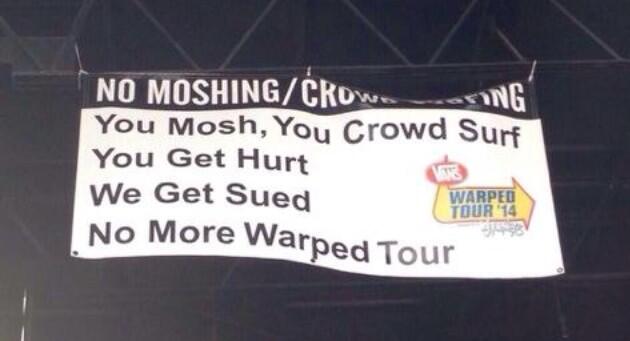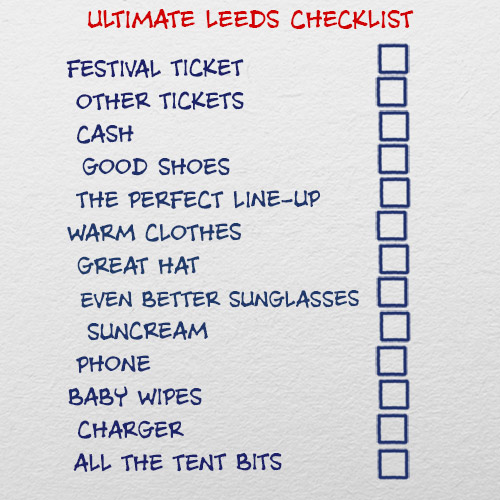On Mosh Pits and Modern Baseball

Most of these concerns, like age restrictions, have the best intentions (eg, the well being of underage listeners) at heart. Warped Tour has intermittently tried to ban moshing, citing the likelihood of injury and a resulting lawsuit. Organizers understand that such behavior is integral to Warped culture, but ultimately take a sort of “this is for you own good” stance. This attitude has become somewhat controversial due to the lack of consensus, amongst members of both the bands and the crowd, on whether Warped has the right to make that decision. Some want to learn to avoid a -core pit the hard way and don’t mind chipping a tooth in the process. Others want to be cautioned, but not restricted and given the option to participate in something like a circle pit. And others still need all the warning they could get, plus signs reminding them “no stage diving.” There are gradients of other opinions between these options, so it’s easy to see why consensus can’t be reached.

As an attendee, the best you can do is your research. Check the venue’s and event’s website for a list of cans and cannots. Some restrictions are common sense. Some you wouldn’t guess even if you tried. Gov Ball, as an example, doesn’t allow chains/chain wallets, glass containers of any kind, drones, or instruments. The Reading Festival forbids air horns, animals, sky lanterns, and reflective jackets. Live Nation and House of Blues Entertainment (the groups behind venues like Gramercy Theatre, Irving Plaza, and Mercury Lounge) specify on their website that chapsticks, tampons, and cigarettes must be ‘sealed’ in order to be brought into their venues. There are also usually specific restrictions on things like non-professional cameras and recording equipment, climbing on stage, flags, tents, and other things you might take for granted at a given concert.
Some of these regulations may sound overly harsh, but keep in mind that they were put in place due to certain inevitabilities. Music may constantly be moving and there might be a new, hit band every minute, but the culture surrounding it doesn’t change. There are things, like vomit at a Used show, that are bound to happen. An educated guess can be made as to where one can expect to find a pit, a prevalence of drugs, or a plethora of casual concert-goers naive to the common sense, unwritten rules of concert-going. There’s also experience. Odds are if something oddly specific is banned, it’s because someone did something very stupid with it a previous year.

In the case of the mosh pit if an individual or individuals are found to be too unruly, how are they to be told, cautioned, or stopped? Is it up to the venue and its security? Or the band? Or is the audience supposed to police itself? If so and you see something in the crowd, how do you say something? A few bands have created a literally line of communication. Most recently, Philly-based band Modern Baseball decided to, for an upcoming tour,
…set up a safety hotline at shows in which you can text the number (201) 731-MOBO if you are feeling unsafe in anyway, and your concerns will immediately be relayed to our tour manager and venue security. Our shows are a safe space and you should feel comfortable.
The band didn’t specify what behavior they’re referring to beyond saying, “if you see someone acting inappropriately or feel unsafe.” This leaves the concert-goer to interpret what that means at a MOB show. Does it mean report someone who might be too intoxicated? Or someone who’s bleeding in the pit? Or do you text the number if you’ve track of your party and need help reconnecting? We’ll have to wait for the upcoming gigs to see this method in action. Others groups, like PWR BTTM and Speedy Ortiz, have successfully launched similarly set up hotlines during their tours for the same reason. So far, it seems like a safe bet.
by Zoe Marquedant
